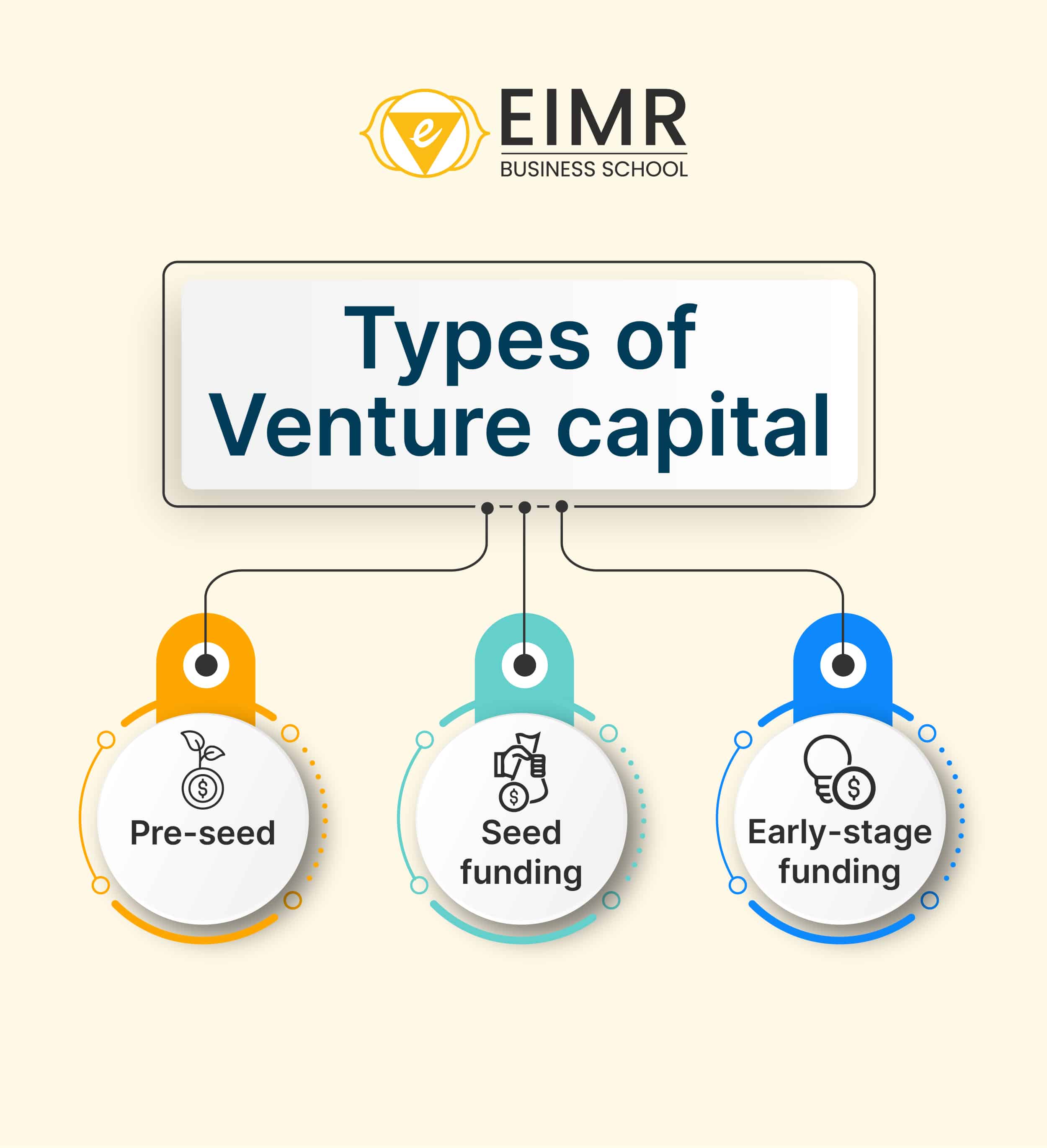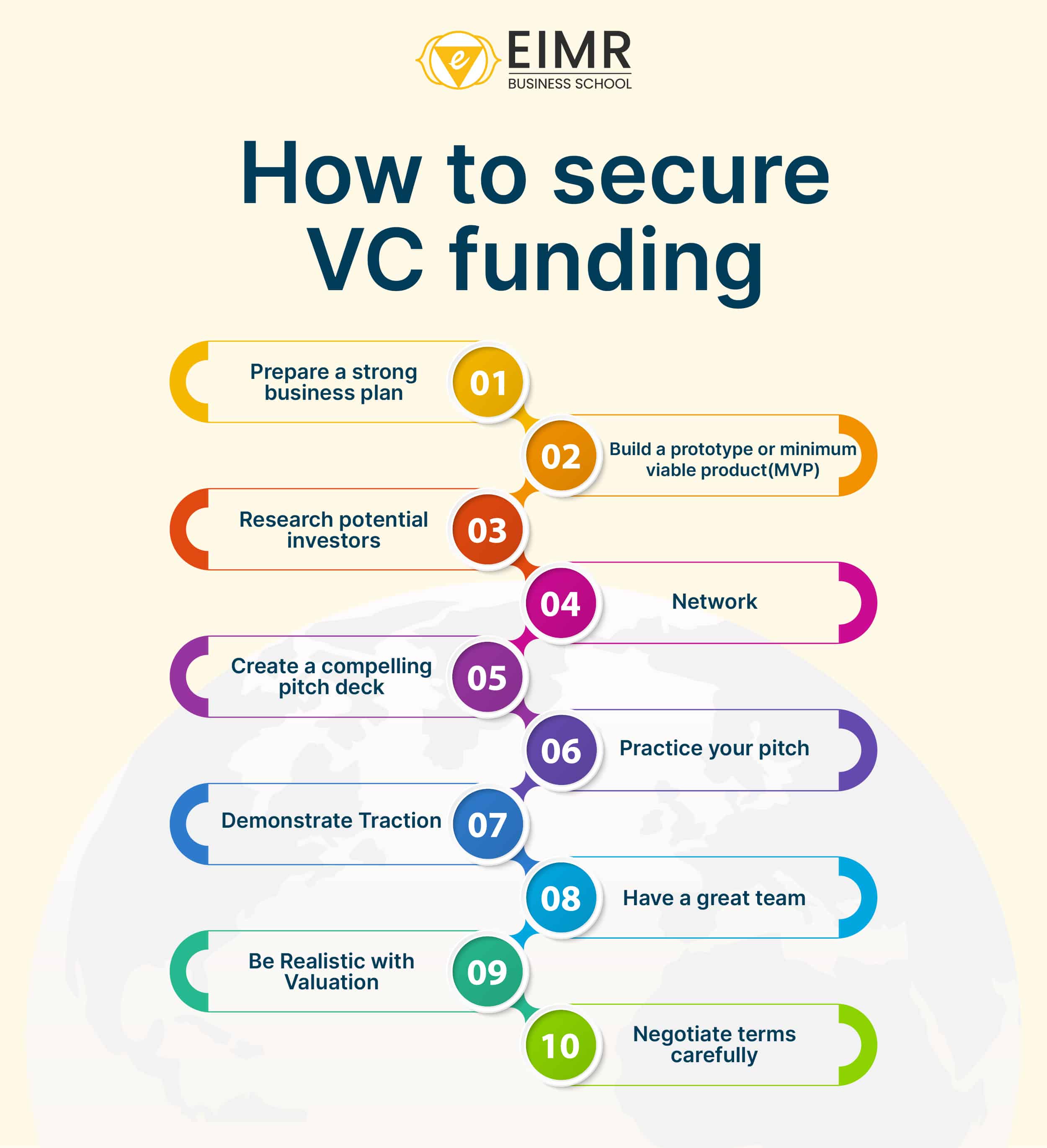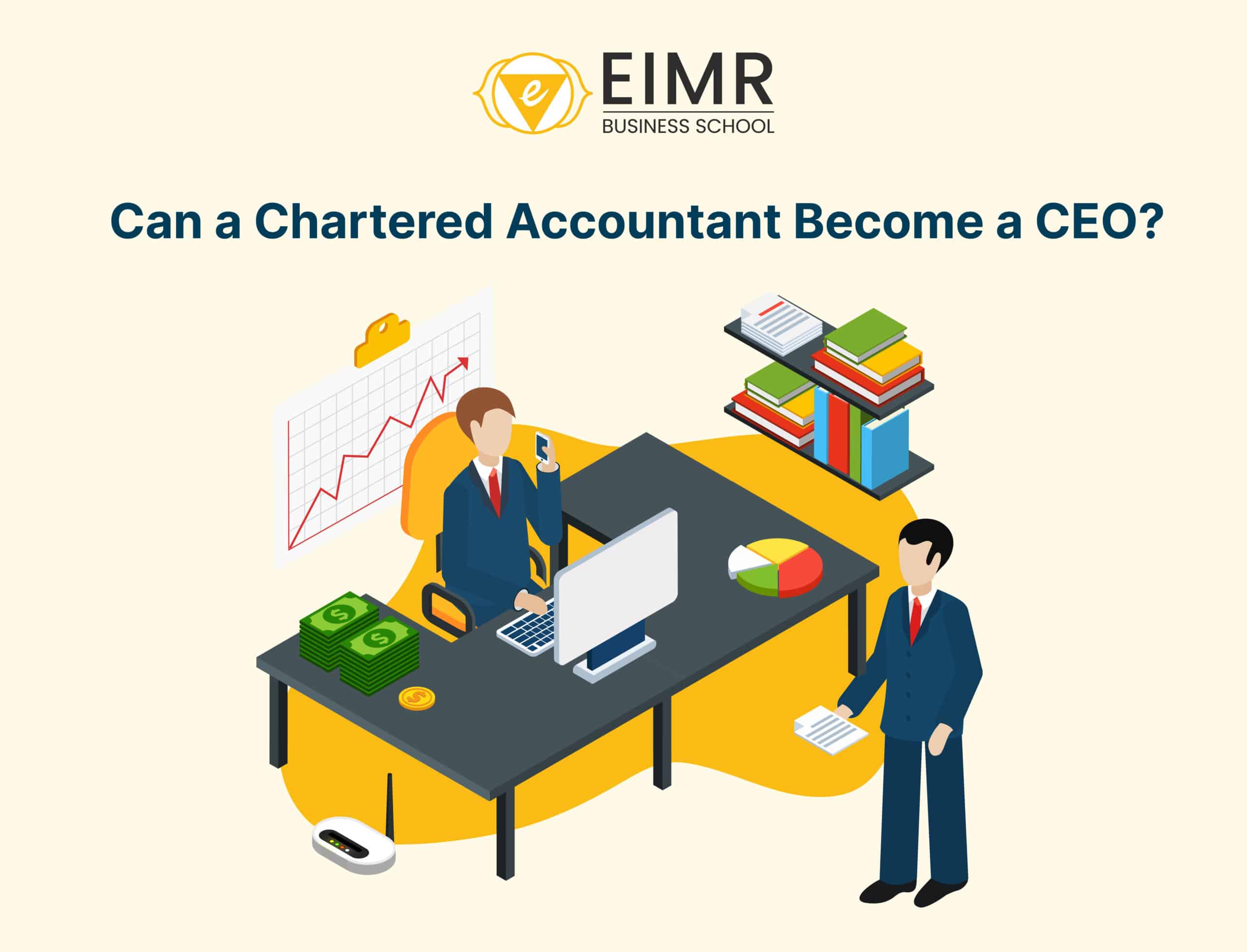What are Venture Capital Funds?
History of Venture Capital:
Understanding Venture Capital Funding:
Startups often seek venture capital funding to launch their company or support their operations. Venture capitalists conduct due diligence to select companies for investment, providing funding in return for an ownership stake typically less than 50%. Successful companies are sought after by large VC firms. The primary goal of venture capital is to increase the value of startups and realize profits through the sale of the company or an initial public offering (IPO). VC firms typically provide funding to companies in their early stages of development.
There are four key players in the venture capital funding:
- Entrepreneurs: They start companies and require funding to bring their vision to life.
- Investors: Individuals willing to take significant risks in pursuit of high returns.
- Investment Bankers: They facilitate company sales or public offerings.
- Venture Capitalists: They create markets for entrepreneurs, investors, and bankers, profiting from successful investments.
Advantages of Venture Capital:
VC provides funding to new businesses that need more cash flow to take on depts. This arrangement can be mutually beneficial because businesses get the capital they need to bootstrap their operations, and investors gain equity in promising companies. However, a business that accepts venture capital support can lose creative control over its future direction. Many VCs are only seeking to make fast, high-return payoffs and pressure the company for a quick exit.
Pros:
- Provides early-stage companies with capital to bootstrap operations.
- Companies need to refrain from showing cash flow or assets to secure VC funding.
- VC-backed mentoring and networking services help new companies secure talent and growth.
Types of Venture Capital:

- Pre-Seed: This stage marks the early development of a business when investors decide to turn an idea into a business plan. The funding amount is greater than the seed round, as startup founders ramp up their businesses.
- Seed Funding: At this stage, a new business seeks to launch its first product and, since it does not have an investor yet, receives its first funding.
- Early-Stage Funding: After a business has developed a product, it will need additional funding to ramp up production and sales before it can self-fund. This business will then need one or more funding rounds, typically denoted incrementally as series A, series B, etc.
Venture Capital Vs Private Equity:
Private equity is often mistaken for venture capital because both involve firms investing in companies and exiting through equity financing, such as holding an initial public offering (IPO). However, there are significant differences.
Definition :
- Private Equity: Refers to capital invested in a company or other entity that is not publicly listed or traded.
- Venture Capital: Involves funding given to startups or young businesses that show potential or long-term growth.
Investment focus:
- Private Equity: PE firms typically invest in mature companies rather than startups. They seek established businesses with stable cash flows.
- Venture Capital: VC investors come in during the early stages, often when a company is still in its infancy. They focus on high-growth potential companies, especially those in innovative or emerging sectors.
Investment amount:
- Private Equity: Investments require substantial capital. Large institute investors, such as pension funds and accredited investors, dominate this space.
- Venture Capital: VC funding is crucial for newer companies, especially those without access to capital markets or traditional bank loans.
Equality ownership:
- Private Equity: PE investors often acquire a significant percentage of equity in the companies they invest in.
- Venture Capital: VC investors may obtain company equity in exchange for funding.
Exit strategy:
- Private Equity: PE investors often buy companies intending to make them private and eventually sell them. Common exit methods include mergers, acquisitions, or secondary buyouts.
- Venture Capital: VC investments are riskier, but if successful, they can yield above-average returns. Exit options include IPOs, acquisitions, or strategic partnerships.
How to Secure Venture Captial Funding:

Securing venture capital funding can be a rigorous process, here are 10 steps to follow to secure funding:
- Prepare a Strong Business Plan: Have a clear, concise, and compelling business plan that outlines your product or service, target market, revenue model, competitive advantage, and growth strategy.
- Build a Prototype or Minimum Viable Product(MVP): Showing potential investors a prototype or MVP demonstrates that your idea is feasible and can attract users or customers.
- Research Potential Investors: Look for venture capital firms with a track record of investing in similar companies. Research their investment criteria, areas of interest, and investments to ensure they align with your business.
- Network: Attend networking events, conferences, and startup competitions to connect with potential investors. Building a network with investors will increase the chances of securing funding.
- Create a Compelling Pitch Deck: Develop a professional and visually appealing pitch deck that highlights key aspects of your business, including market opportunity, product or service, team, traction, and financial projections.
- Practice your Pitch: Be prepared to deliver a concise pitch that captures the attention of investors.
- Demonstrate Traction: If you have early customers, partnerships, or revenue, highlight these achievements to demonstrate traction and reduce investor risk.
- Have a Great Team: Investors often prioritize investing in the team as much as they do in the idea. Ensuring that the team can handle the task and show promise in completing it is crucial.
- Be Realistic with Valuation: Set a realistic valuation for your company based on market comparables and future potential. Overvaluing your company strategy can create high expectations and can deter investors while undervaluing it can lead to giving away too much equity.
- Negotiate Terms Carefully: Understanding the terms of investment, including equity stake, valuation, board seats, and investor rights. Negotiate terms that are fair and favorable for both parties.
Conclusion:
Venture capital plays a significant role in shaping industry trends as it determines which companies to invest in and identifies products with strong market potential also helps in the growth of the economy of the country. Many startup companies find it hard to select the right VC that matches the ideology of the company and the investors. For situations like this EIMR – Business School provides UG programs like BBA, BCA and B.Com with seed funding to startup companies also offers Entrepreneurs training on starting a company and get access of growing 21 core seed funding while helping them build networks and connections with investors. This institute helps startups get access to funding in partnership with other VCs such as Venture Catalyst, Jain Launchpad, and EIMR- Centre for Incubation and also helps in making proper strategic plans to be successful in launching the product or service.







